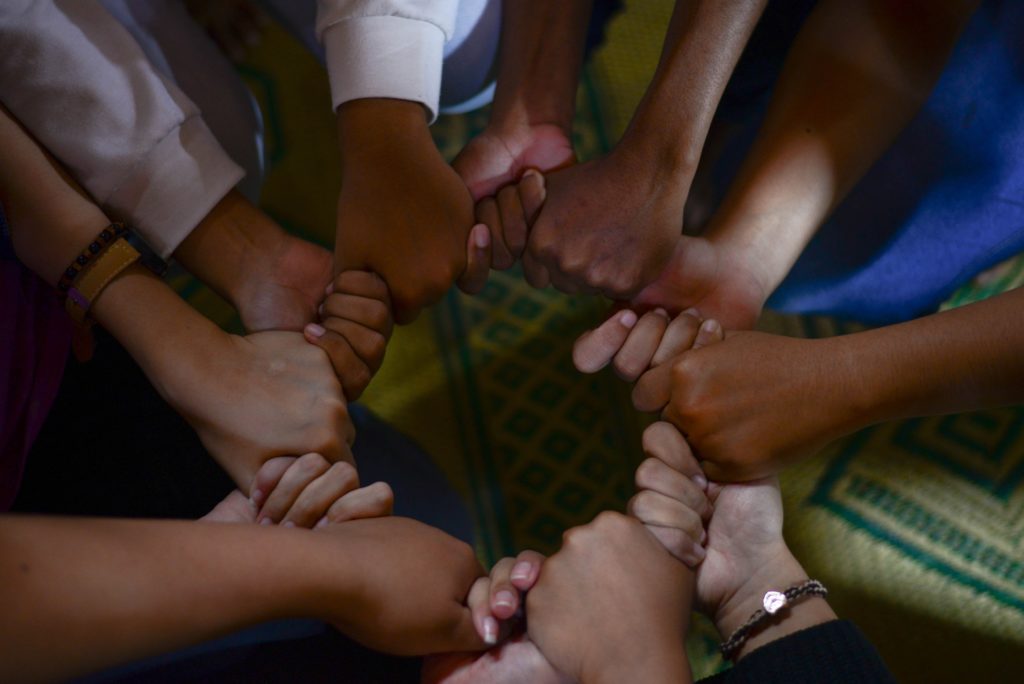While we all acknowledge there is much to do as we “grow in grace and knowledge”, it is good to note that Christianity has made significant contributions to matters of race and equality
 By Marty Davey, GCI Pastor, Jacksonville, FL and Woodbine, GA.
By Marty Davey, GCI Pastor, Jacksonville, FL and Woodbine, GA.
We can probably all come up with examples of Christians or Christian churches doing or saying something that was—whether intentionally or not—racially biased or discriminatory. There are embarrassing examples in history of churches and preachers justifying slavery, even misusing Bible verses. In modern times we know there are hate groups who misquote or take scriptures out of context and burn crosses. While they may use his name, these are not true representatives of Jesus Christ.
As weak and distracted human believers, we can be unknowledgeable, insensitive and at times apathetic about things that don’t immediately affect our personal lives. As a result, we often fail to follow the biblical injunctions to “bear one another’s burdens” and to “weep with those who weep” (Galatians 6:2 ESV; Romans 12:15 ESV).

While many popular pastors are stating the Church has failed by refusing to participate in matters of social injustice, I believe this is a broad and harsh overstatement. I believe many of us are experiencing heightened emotions about social injustice during this time of distress in our country because we are caring and conscientious followers of Jesus.
The Church of Jesus Christ, the Body of believers—each one of us—embody God’s gift to mankind for the appointed task of ministering his gospel. The Church’s work, although performed imperfectly through imperfect men and women, is the work of the Holy Spirit. Therefore, it is essential that, in our humility and openness to criticism, we do not overlook, diminish, or denigrate the work of the Holy Spirit in the Body of Christ! In other words, before we lay an unhealthy and unbearable burden of shame and guilt upon ourselves and our fellow Christians, it is helpful to be reminded of the many significant contributions that Christianity, the Church and its members have made and are making to the cause of racial reconciliation and equality. This is not a denial of the church’s mistakes or shortcomings, but we need to restore balance by valuing and appreciating the work of the Holy Spirit in the Church.
Consider the following significant contributions the Christian Church makes to the cause of racial reconciliation and equality:
- The long-standing sin of slavery was largely defeated and ended due to the influence of the moral teachings of Christianity upon Western civilization. Any reader of the Bible knows that slavery existed throughout history in many different nations, including the enslavement of the children of Israel. Slavery had been historically treated as normal and accepted throughout the world—until Western civilization, under the influence of Christian values, put an end to it. No other major culture or society ever did so.
As Dr. Thomas Sowell puts it, “Moral questions about slavery have been, almost exclusively, Western moral questions. Non-Western societies had neither moral concerns about slavery nor, in most cases, the power to decide on the continuance or extinction of the institution for themselves during the era of European imperialism, when slavery was suppressed over most of the world by the West.”[1]
- Christians were significant and influential leaders in the abolitionist movement. Two well-known examples are William Wilberforce, and William Lloyd Garrison. Wilberforce was a British politician and philanthropist who became an evangelical Christian in 1785. He then became a leader of the movement to abolish the slave trade. Garrison was a man of strong Christian faith who lived in Baltimore and Boston. He attended black churches and became convinced slavery was a national evil. Using his newspaper, The Liberator, to try to convince his readers of the evil of slavery, he worked in the antislavery movement for 30 years.
- Christianity, Christians, and Christian churches, especially in the African-American community, have been very influential and effective in advancing the civil rights movement. The above linked article says: “It remains impossible to conceive of the civil rights movement without placing black Christianity at its center, for that is what empowered the rank and file who made the movement ”
- Christianity aggressively teaches values, beliefs, and behaviors that reduce and correct racial inequality and discrimination, and work to improve the lives of minorities. Some examples include:
- Churches and Christianity teach who God is as our loving Father and Creator, and that we are all God’s children, made in his image. All races become brothers and sisters in Christ. Some who historically taught otherwise were misrepresenting the scriptures and the beliefs of most Christians.
- Churches and Christianity teach about coming to Jesus in personal repentance and being transformed by the Holy Spirit to live a life of love towards all. This transformation includes reconciliation with and acceptance of each other. When these truths are fully embraced and practiced, they will eliminate the sins of racism and injustice.
- Churches and Christianity teach forgiveness and the complete removal of our guilt and shame through the cross of Christ. Both the majority and minority populations in the US struggle with guilt and shame, and it distorts both their actions and opinions about themselves and others.
- Churches and Christianity teach the importance of the nuclear family, as instituted by God, as well as the values of marital and sexual faithfulness, along with parental love and responsibility. Ignorance of and rejection of these values has contributed significantly to tremendous consequences upon all, particularly those in poor communities. Churches are working hard in these communities.
In his book, Woke Church, pastor Eric Mason, in describing what churches can do to address racial inequalities, has this to say about the necessary role of the church as what he calls a “Family Training Center.” He said. “The church needs to be a family training center and …the church is uniquely equipped to do this. The family is the foundation of our communities. When they are destroyed, our communities fail. They cease to be nurturing places.”[2]
- Churches and Christianity are hugely involved in relief efforts to those who are suffering from difficulties of all kinds, including inequalities, racism, injustices, and lack of basic needs. Many, if not most churches, have active charitable ministries and programs and are constantly helping the disadvantaged. They also provide counseling, encouragement, and assistance.
- Churches and Christianity have long been known for sending missionaries all around the world, to share the gospel and to help with basic needs. This ministry of love to people of all ethnicities is done at tremendous personal sacrifice and sometimes risk. And it has been going on for centuries.
Churches are often criticized for not speaking up or doing more to combat racism and injustice. There is always more we can do, and we need to listen and evaluate honestly. But let’s also realize that Christians sometimes refrain from saying or doing things that others feel they should do for valid and just reasons—such as resisting political manipulation, or refusing to participate in unproven accusations, or activities that harm others’ lives or properties. Churches and Christians know that it is not right in God’s sight to “do evil that good may come” (Romans 3:8), and so we proceed cautiously and do what we can with a clear conscience.
We also know the wisdom and strategies of this world are not the same as the wisdom of God (James 3:13-18), which produces the fruit of peace. And “human anger does not produce the righteousness that God desires” (James 1:20 NIV).
As we acknowledge Jesus as our center, and love as he loves, we will see the church grow. In the meantime, it is important to appreciate the Church’s many helpful teachings and actions and never underestimate its importance and impact, nor dismiss and de-value the work of the Holy Spirit in our midst.
[1] Thomas Sowell, Black Rednecks and White Liberals(Encounter Books, 2005), 162.
[2] Eric S. Mason, Woke Church (Chicago: Moody, 2018), 153.



I think it important to underline that the encouragement to “grow in grace and knowledge” is meant in a relational sense, Jesus being the focus. In other words, in the Spirit, we are to experientially strive towards a greater understanding of the being of our Lord and Savior. And, as we grow in him, our values and views will be shaped and molded to conform to his image, one that utterly rejects racism and every form of discrimination and injustice.